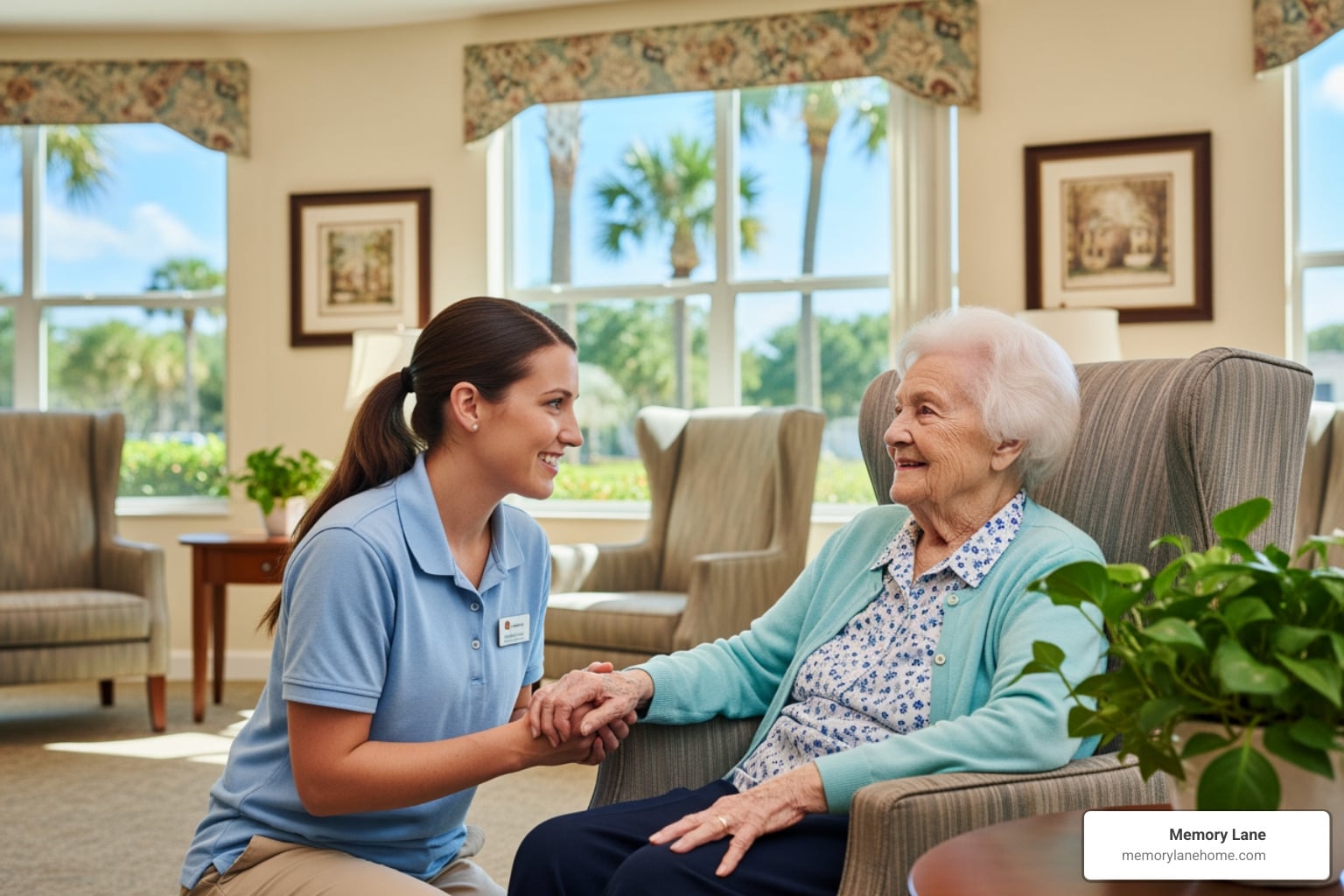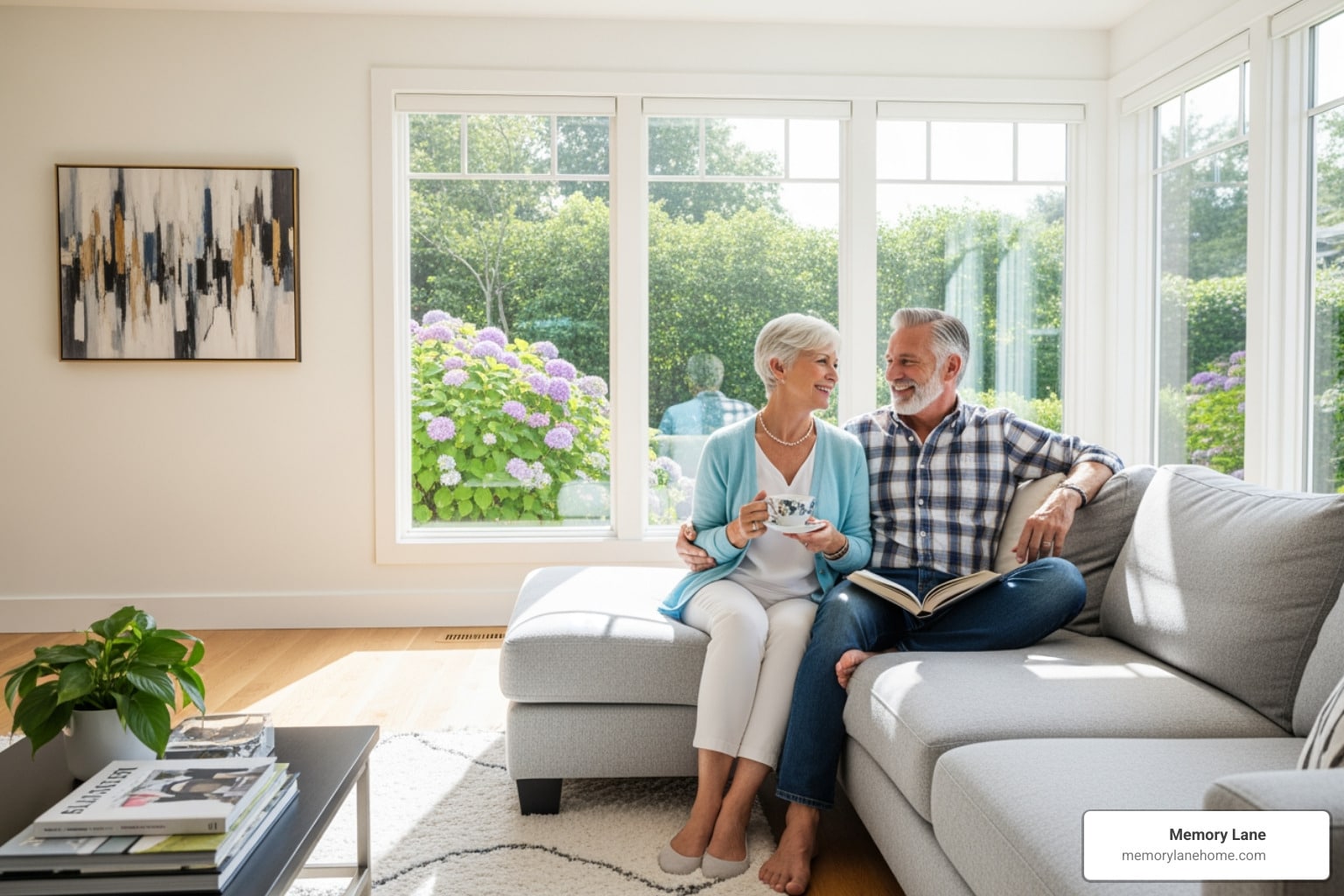Navigate memory care Delray FL with our guide. Discover costs, quality, specialized programs & ensure safe, compassionate support.
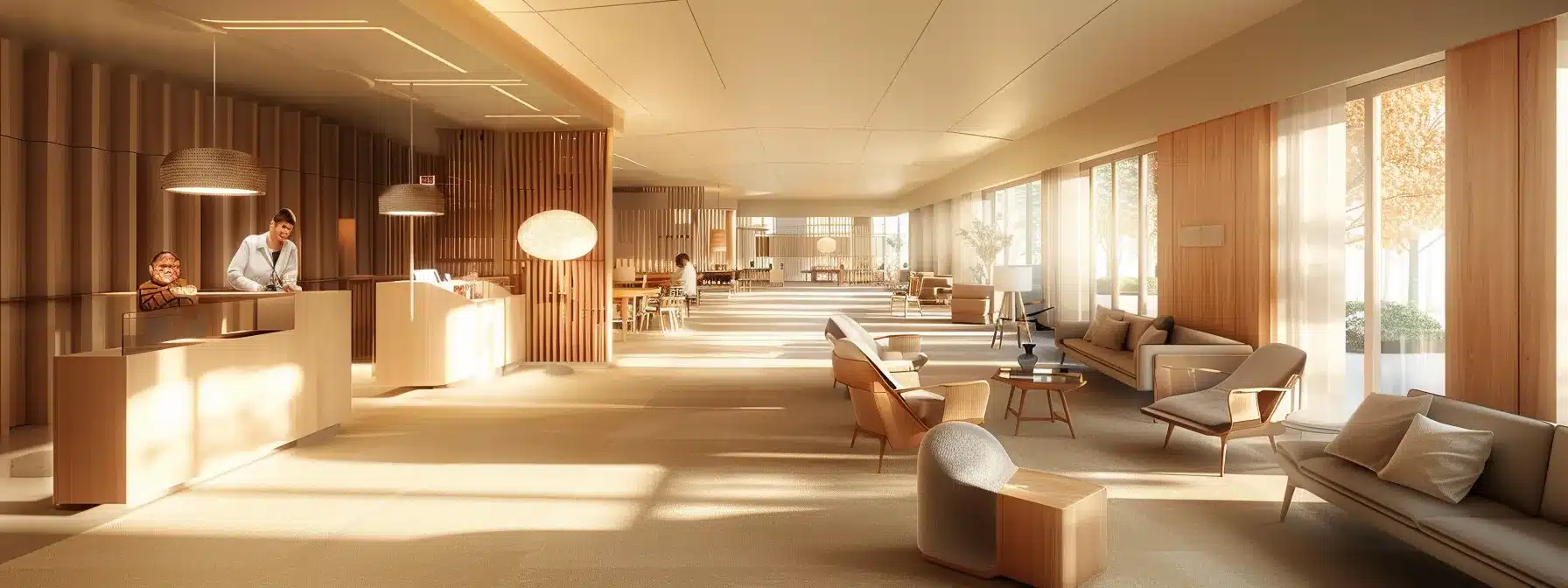
Discover Key Dementia Care Elements in Michigan Facilities
able Of Contents:
- Dementia Care Standards in Michigan Skilled Nursing Homes for Enhanced Resident Support
- Key Takeaways
- Understanding Dementia Care Standards in Michigan Skilled Nursing Homes
- Specific Requirements for Dementia Care in Skilled Nursing Homes
- Care Practices and Protocols for Dementia in Michigan Skilled Nursing Homes
- Family Involvement in Dementia Care
- Compliance and Monitoring of Dementia Care Standards
- The Role of Technology in Enhancing Dementia Care
- Future Directions for Dementia Care Standards in Michigan
- Frequently Asked Questions
- Conclusion
Dementia Care Standards in Michigan Skilled Nursing Homes for Enhanced Resident Support
Dementia care standards in Michigan skilled nursing homes must meet the highest quality benchmarks for resident support. This post outlines specific requirements for dementia care, explains everyday care practices, and highlights family involvement in treatment. Families and caregivers will learn how these standards improve outcomes and ease daily concerns. Readers will gain actionable insights to better manage challenges in dementia care.
Key Takeaways
- memory lane assisted living delivers personalized dementia care in a residential setting
- strict guidelines ensure safe emergency protocols and regular medical assessments
- tailored facility design and staffing promote resident safety and independence
- families play an active role in shaping individualized care plans
- technology aids in proactive monitoring and immediate health interventions
Understanding Dementia Care Standards in Michigan Skilled Nursing Homes

The state guidelines in Michigan promote quality care for residents with dementia. These standards ensure emergency protocols, healthy meals on wheels, accessible courtyard environments, and regular physician oversight. Key organizations actively shape these benchmarks, ensuring consistent, secure, and effective support, making these standards critical for enhanced resident safety and well-being.
Overview of Dementia Care Standards in Michigan
The dementia care standards in Michigan skilled nursing homes focus on ensuring resident safety while offering specialized services tailored to those with dementia. These standards, applicable to diverse settings including assisted living, consider factors such as local zip code demographics and effective emergency procedures to achieve a secure environment similar to quality care practices observed in Wisconsin facilities.
Michigan’s guidelines require regular assessments by skilled professionals familiar with dementia challenges to uphold safety and personalized care. This approach, which mirrors quality practices in assisted living across different regions, including Wisconsin, provides actionable insights for caregivers and families looking for clear and reliable standards in dementia care.
Importance of Adhering to Care Standards for Resident Support
The importance of adhering to care standards is evident in the daily routines that support patientbehavior and overall wellness in skilled nursing homes. This adherence ensures that every individual receives vigilant supervision, which can have a significant impact on managing disease and promoting safety within each memory care facility:
Strict care policies cultivate an environment where each patient feels respected and supported, directly responding to the challenges related to memory loss and accompanying behavior changes. By maintaining rigorous standards, caregivers set a benchmark for quality care that addresses not only the physical but also practical needs of seniors, ensuring peace of mind for families.
Key Organizations Involved in Dementia Care Standards
Key organizations influence dementia care through rigorous regulation and oversight, ensuring that memory care homes maintain high levels of safety and quality for every resident. These bodies work closely with local county officials to address concerns such as injury prevention and the implementation of consistent dementia care protocols:
Specialized groups and advisory panels provide practical insights derived from direct experience in dementia care, ensuring that all regulation measures align with the real needs of assisted living facilities. Their ongoing evaluation helps tailor strategies that enhance resident support while fostering trust across the county and in memory care homes.
The story so far lays out the groundwork for dementia care in Michigan skilled nursing homes. Now the discussion turns to the clear rules that shape the care in these facilities.
Specific Requirements for Dementia Care in Skilled Nursing Homes

This section outlines essential standards for effective dementia care. It emphasizes staffing qualifications and training standards, facility design with practical environment adaptations, and individualized care plans for residents. Experienced professionals assess aspects such as staffing ratio, housekeeping practices, and the philosophy guiding care, drawing insight from kent and university of michigan benchmarks to ensure quality support.
Staffing Qualifications and Training Standards
Qualified staff are essential in dementia care facilities to support residents through daily challenges, including nutrition and activities of daily living, ensuring they receive well-rounded personal attention. This organization prioritizes specialized training that covers not only practical caregiving tasks but also simulating the supportive environment of a village, where each individual is treated with care reminiscent of a place for mom.
Staff training programs focus on hands-on skills and real-world scenarios to build confidence and competence among team members. By emphasizing personalized care and regular updates on best practices, the organization helps caregivers manage complex needs, such as balancing a nutritious diet and promoting active engagement in activities of daily living, thereby enhancing overall resident support.
Facility Design and Environment Adaptations
Facility design in skilled nursing homes is essential for ensuring residents receive optimal support through tailored residential care environments. Design features that provide clear sightlines and secure pathways contribute to a higher quality of life for individuals requiring alzheimers-care, while incorporating elements such as legal aid offices and designated respite care zones helps meet diverse resident needs.
The layout of a facility plays a key role in promoting safety and comfort for residents with memory challenges. Practical adaptations in the design, including enhanced lighting and accessible spaces, are critical for maintaining quality of life, and they provide a seamless integration of services like alzheimers-care and respite care to support both residents and their families.
Individualized Care Plans for Residents
Individualized care plans for residents focus on meeting personal needs through practical strategies that uphold dignity and compassion while addressing unique challenges. This approach emphasizes a balanced diet, timely adjustments, and opportunities to request information for further clarity on care options:
- Tailored diet plans that consider nutritional needs
- Personalized schedules based on medical assessments
- Regular updates to care plans in consultation with professionals from Ottawa
The care facilities implement these plans by using thorough assessments and regular check-ins to ensure each resident receives support that matches their requirements. The strategy incorporates practical examples such as individualized adjustments in diet and compassionate communication to promote a secure and dignified environment.
The requirements forge a clear path. Next, Michigan homes offer straightforward care practices designed to meet those needs.
Care Practices and Protocols for Dementia in Michigan Skilled Nursing Homes
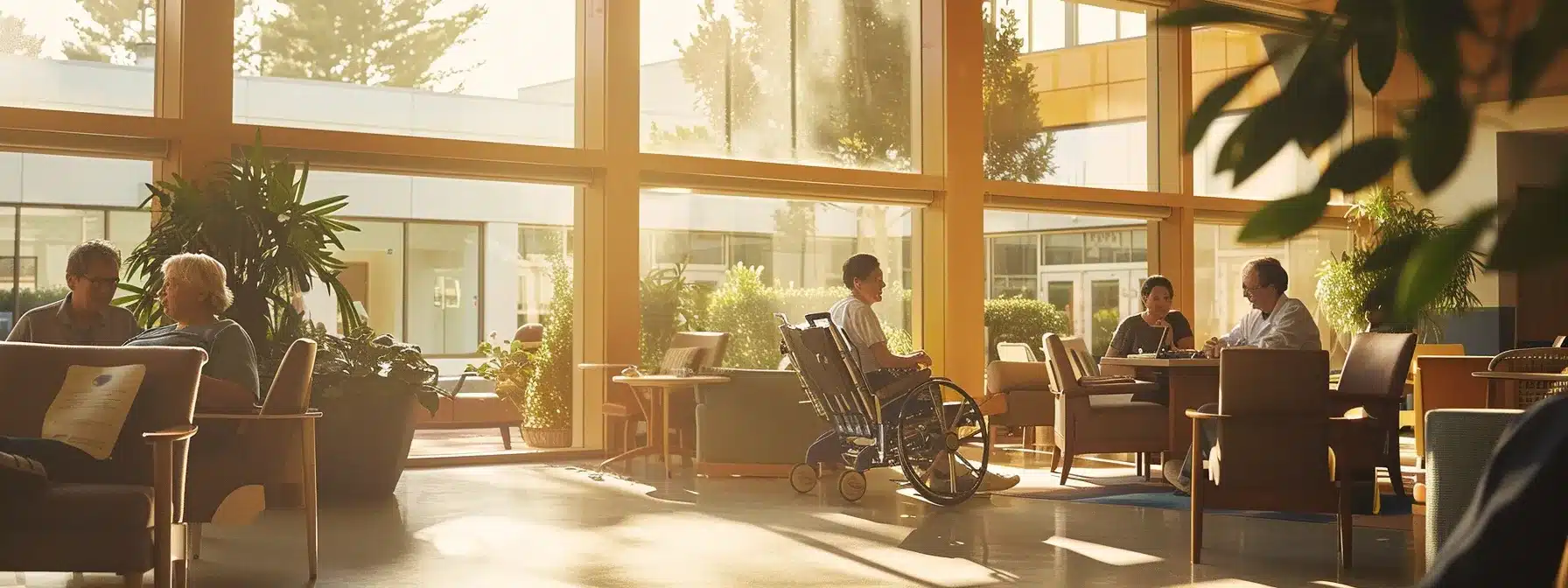
This section covers practical communication techniques with residents, behavior management strategies for those with dementia, and methods to promote independence in daily activities. It emphasizes nursing care, proper hygiene practices, and the supportive approach of assisted living memory facilities like memorylanehome, ensuring reliable health care for improved resident outcomes.
Communication Techniques With Residents
The organization applies practical communication techniques with residents by using clear and consistent language to reduce stress and reinforce memory retention. Staff members encourage volunteering opportunities within the facility to foster an engaging environment, while discussions also include clarifications about power of attorney processes to ensure that family members and legal guardians understand their roles and responsibilities.
Skilled professionals use practical methods adapted from foster care principles to establish trust and maintain connections with residents. This approach promotes straightforward communication, easing stress and supporting memory through regular, respectful interactions that help residents feel secure and valued.
Behavior Management Strategies for Residents With Dementia
The organization applies behavior management strategies to ease agitation and promote stability for residents in every nursing home setting, ensuring that each adjustment supports consistent elderly care. Staff use clear guidelines derived from insights provided by the michigan department of health and human services and primary care practices to reduce stress and improve overall wellness.
Experienced caregivers implement practical techniques that balance structure with individual needs, using methods supported by medicaid standards to offer tailored support in a secure environment:
Promoting Independence and Participation in Daily Activities
The organization adopts practical strategies that promote independence and participation in daily activities. Regular routines include music therapy sessions that stimulate memory retention, and staff ensure that medication schedules are carefully managed while also assisting residents with estate planning questions, guiding families to trusted resources like memory care services available in the area.
The care team encourages residents to engage in leisure and personal interests, fostering an environment that supports active living even in challenging circumstances. Residents and families can obtain further assistance through clear communication, including reaching out via email address for tailored advice on maintaining daily routines and overall well-being.
Skilled nursing care lays a solid foundation for managing dementia. The next part shows how family touch strengthens that care.
Family Involvement in Dementia Care

Families play an active role in developing individualized care plans. The section covers practical insights on integrating memory care services, consistent meal planning, and reducing turnover. It also highlights resources for family education and support while encouraging visits and participation from families, including those in Indiana and veteran communities.
Engaging Families in the Care Planning Process
Families are actively engaged in the care planning process, ensuring that every decision follows clear guidelines that reflect each resident’s unique needs and preferences. The involvement of family members in discussions, including topics such as reverse mortgage options, provides practical insights that help align financial planning with personalized care strategies.
Family participation in care planning strengthens the connection between professional caregivers and loved ones by offering actionable advice supported by direct experience. The process encourages transparent dialogue about financial choices, such as reverse mortgage considerations, while ensuring that care plans remain focused on delivering quality support in Michigan skilled nursing homes.
Resources for Family Education and Support
The organization offers a collection of resources designed to educate family members on the procedures used in dementia care standards across Michigan skilled nursing homes. These tools include easy-to-follow guides, educational events, and interactive online portals that support families in making informed care decisions.
Families can access tailored support that explains essential topics such as care planning and legal options for financial arrangements, providing clear and practical advice for everyday challenges:
- Educational webinars on dementia care practices
- Printed guides with step-by-step instructions
- Online support forums for sharing real-life experiences
This collection of resources assists families in understanding the care standards and addressing key concerns related to memory care support.
Encouraging Families to Visit and Participate
Families are encouraged to visit skilled nursing homes to see firsthand the personalized approach to dementia care. Their active participation strengthens trust in care practices and helps ensure that residents receive support that aligns with their individual needs.
Regular visits allow family members to connect with caregivers and learn practical strategies for supporting loved ones. This engagement fosters a collaborative environment where professionals and families work together to maintain a secure and comfortable setting for residents.
Family ties nurture every day. Care standards ensure that each step holds true to promise.
Compliance and Monitoring of Dementia Care Standards
The state employs regular inspections and accreditation processes to ensure quality dementia care. Clear reporting mechanisms for non-compliance and ongoing training for staff support consistent monitoring. These steps help maintain detailed oversight, ensuring every facility meets key standards and effectively serves residents while offering practical insights into strengthening care practices.
State Inspections and Accreditation Processes
The state conducts regular reviews to ensure that skilled nursing homes meet established dementia care standards. Professional inspectors assess facility operations and verify that practices align with approved guidelines for enhanced resident support.
Accreditation processes further assure that facilities maintain quality care and safety in their operational procedures. These assessments provide clear evidence of compliance and help identify areas in need of additional attention, guaranteeing a secure environment for residents.
Reporting Mechanisms for Non-Compliance
The monitoring process in Michigan skilled nursing homes relies on clear reporting mechanisms that allow for quick identification of issues. The system gathers feedback from both staff and families regarding any deviations from established dementia care standards.
The procedures demand prompt reporting of non-compliance, helping to maintain care quality and resident safety:
Ongoing Training and Assessment for Staff
Staff training in Michigan skilled nursing homes is maintained through regular in-service sessions that focus on practical care techniques for residents with dementia. The process includes scenario-based exercises that empower staff to meet each resident’s unique needs.
The organization implements ongoing assessments and refresher courses to ensure every team member is equipped with up-to-date practices and clear safety procedures:
Compliance standards keep our work honest and true. New smart tools now make care more precise and help each day run smoother.
The Role of Technology in Enhancing Dementia Care

This section covers telehealth services for resident support, use of monitoring technologies in nursing homes, and innovative approaches to daily care through technology. It offers practical insights into how these advancements work together to support dementia care standards and improve resident safety and well-being. The following topics provide relevant expertise in effective, technology-enhanced care practices.
Telehealth Services for Resident Support
Telehealth services in skilled nursing homes provide residents with quick access to professional consultations, ensuring timely responses to health changes. This approach bridges gaps in care by allowing experts to monitor patient health remotely and adjust clinical care plans in real time.
The integration of telehealth technology in dementia care supports continuous monitoring and effective communication between caregivers and medical professionals. This service enhances resident support by addressing health concerns promptly and ensuring a secure care environment.
Use of Monitoring Technologies in Nursing Homes
The use of monitoring technologies in nursing homes has proven essential for maintaining high standards of dementia care in Michigan. These systems allow staff to track resident safety, quickly identify changes in behavior, and tailor support in real time:
- Continuous monitoring of resident activity
- Real-time alerts for potential safety concerns
- Enhanced communication between caregivers and medical professionals
Reliable monitoring solutions help skilled nursing homes stay proactive when it comes to resident wellbeing. Practical examples include the ability to observe residents remotely, ensuring that any health or mobility issues receive immediate attention from trained staff.
Innovative Approaches to Daily Care Through Technology
Michigan skilled nursing homes are integrating smart systems that simplify daily routines for residents with dementia. These technological solutions allow caregivers to track health metrics and adjust care plans in real time, ensuring practical support for each patient.
Innovative devices and software make it easier for professionals to monitor resident activity and provide assistance when needed. This approach helps maintain a secure environment by offering precise, actionable data that improves daily care and overall resident satisfaction.
Technology has reshaped how care is given with practical tools that make a real difference for dementia patients. Next, the focus shifts to evolving care standards in Michigan, where simple changes are paving the path for safer, more compassionate living.
Future Directions for Dementia Care Standards in Michigan
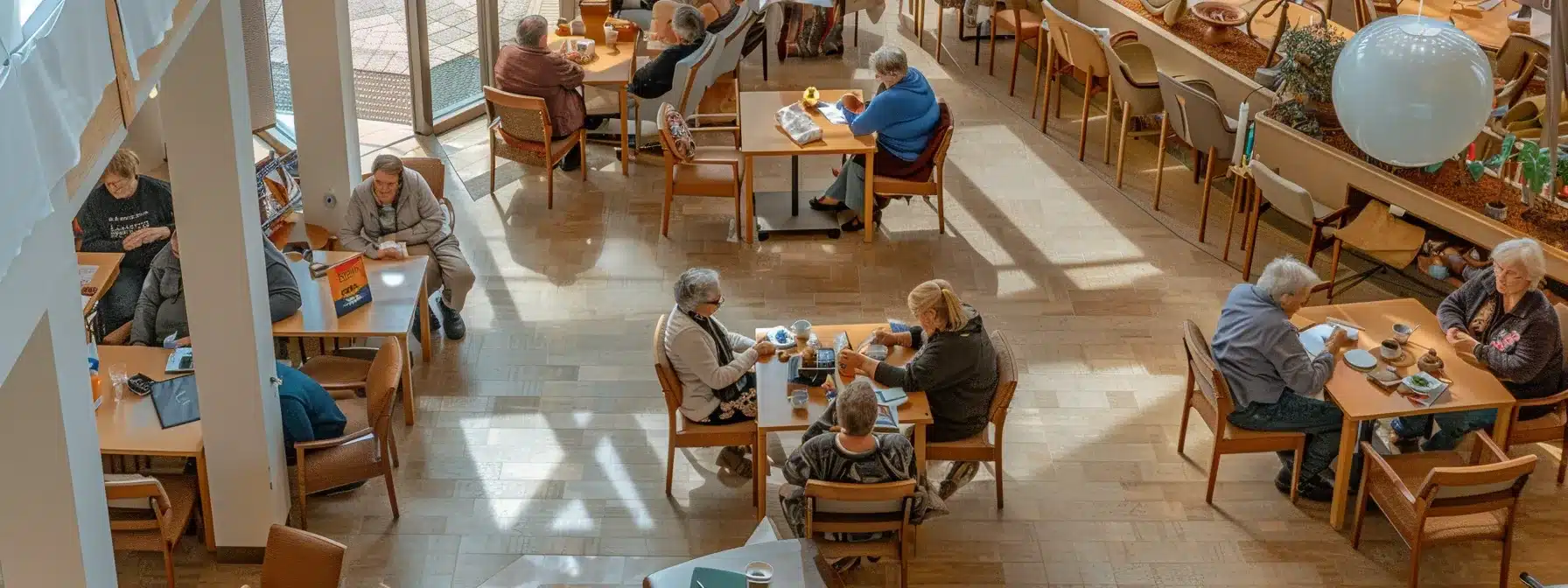
This section highlights emerging trends in dementia care practices, examines potential legislative changes impacting care standards, and outlines community initiatives to improve dementia care quality. The following topics offer practical insights and expert perspectives, connecting current practices to future improvements in resident support across Michigan’s skilled nursing homes.
Emerging Trends in Dementia Care Practices
Emerging trends in dementia care practices show a shift toward individualized treatment plans and flexible staffing models in Michigan skilled nursing homes. The approach focuses on using cutting-edge monitoring tools and enhanced telehealth services to offer prompt and effective resident support.
Recent advancements in facility design and training techniques pave the way for more practical and person-focused dementia care. These trends meet the evolving needs of residents by promoting customized interventions and clear communication among caregivers, families, and professionals.
Potential Legislative Changes Impacting Care Standards
Legislative changes in Michigan may soon introduce updated requirements that enhance safety and care quality in dementia care environments. These changes aim to streamline procedures and improve monitoring techniques to ensure residents receive consistent, professional support:
State lawmakers are reviewing policies to address issues faced by skilled nursing homes, leveraging practical examples from current industry practices. The potential legislative updates focus on improving resident outcomes while simplifying compliance procedures for facilities dedicated to delivering reliable and expert care.
Community Initiatives to Improve Dementia Care Quality
The community actively engages in initiatives designed to improve dementia care quality in Michigan skilled nursing homes, encouraging collaboration among care providers, local health organizations, and families. This combined effort demonstrates practical steps taken by professionals to boost safety and resident support, resulting in measurable improvements in care processes and outcomes:
Community programs contribute by hosting educational events and support groups that improve understanding and practical application of dementia care standards. This proactive approach addresses key concerns for residents and family members while ensuring that care practices remain current and focused on effective, person-centered support in the assisted living environment.
Frequently Asked Questions
What are the main dementia care standards in Michigan skilled nursing homes?
Michigan skilled nursing facilities focus on personalized care approaches, specialized memory care programs, ongoing staff training, and strict adherence to state guidelines to ensure seniors receive tailored support for Alzheimer’s and other forms of dementia.
How do care practices support residents with dementia?
Memory Lane Assisted Living uses person-centered care in small residential settings, offering specialized dementia care that prioritizes time, attention, and a supportive environment to meet each resident’s unique needs.
What specific requirements guide dementia care in nursing homes?
Regulated guidelines demand personalized care plans, trained staff, safe and familiar surroundings, and structured routines tailored to cognitive needs. Facilities integrate specialized programs, proper memory care techniques, and thorough oversight to ensure respect and dignity in everyday living.
How is family involvement integrated into resident support?
At Memory Lane Assisted Living, family involvement is seamlessly integrated into resident support. Families and staff collaborate closely to provide personalized dementia care and shared decision-making, ensuring that each resident in this assisted living facility receives proper time, attention, and support.
What role does technology play in strengthening dementia care?
At Memory Lane Assisted Living, technology supports tailored dementia care by streamlining communication and health monitoring, ensuring timely interventions that boost memory care and overall resident safety.
Conclusion
Michigan skilled nursing homes apply stringent dementia care standards to ensure every resident receives focused, reliable support. These standards drive regular assessments, specialized training, and practical facility adaptations that directly improve resident safety and well-being. State regulations and dedicated community initiatives reinforce clear communication, prompt interventions, and personalized care plans that meet each individual’s needs. Professionals actively implement these practices to foster an environment where residents enjoy optimal health and a secure sense of belonging.
